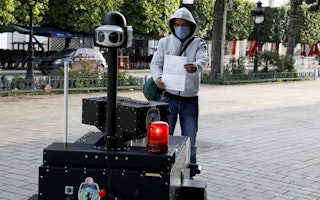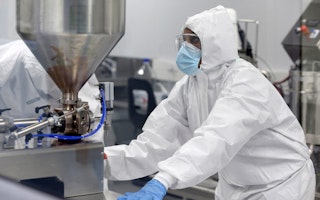10 Lessons from HIV for the COVID-19 Response
By Daniel Wolfe
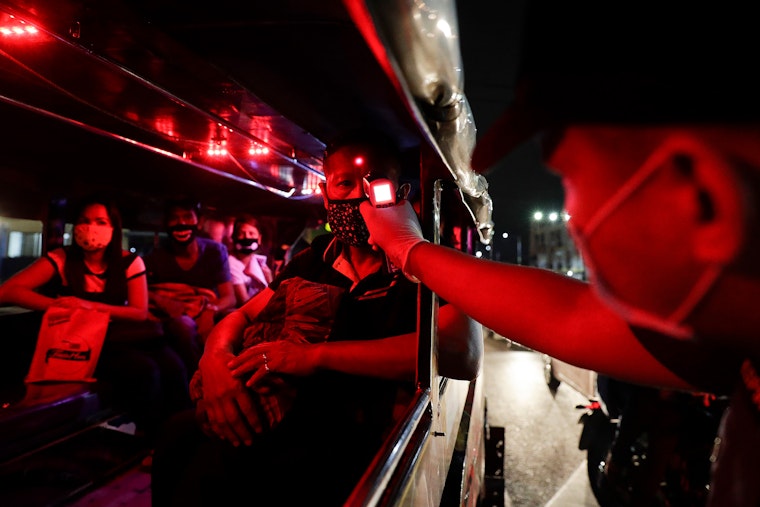
Societies facing pandemics move through a version of Kübler-Ross’s famous stages of grief—denial, anger, depression, and so on. As the world moves from lockdown to living uneasily with this new coronavirus, here are 10 lessons we can learn from a pandemic we have lived with longer: HIV.
The search for origins may cloak bad-faith and divisive impulses
Whether labeling it the Chinese virus (President Trump), the Wuhan virus (Singapore), a creation of the U.S. Department of Defense (China), or a plot by Bill Gates (multiple conspiracy theorists), most discussions of viral origins fuel resentment rather than scientific insight.
With AIDS, for example, mistaking those among whom the disease was first detected —homosexuals, Haitians, hemophiliacs, and heroin addicts, or the so-called “4-H club” —as the only ones at risk delayed effective response and encouraged discrimination. Scientists should investigate animal-to-human transmission and national origins. Policymakers should focus more on effective pandemic response.
Think harm reduction, not risk elimination
Communities hit by HIV learned to think in terms of “safer” rather than safe, and to make choices that allowed people to continue activities essential to life—having sex, using drugs, conceiving children—while minimizing risk. COVID-19 will similarly require a risk reduction approach, accurate information, and tools for people to reduce infection—not denialism, politicization of prevention, or the expectation of absolute safety.
Trust is as important as tests
Despite a focus in Washington on testing as the most important metric of a national response, testing and contact tracing for COVID-19 cannot work without reliable systems of social support.
With HIV, many advocates opposed the use of home tests until there were mechanisms to provide treatment and protections from discrimination. It is unrealistic to expect people to take tests (antibody or antigen) if they don’t know how employers, health authorities, unemployment insurance agencies, and child welfare systems will deploy the results. No health technology can work if people are afraid to use it.
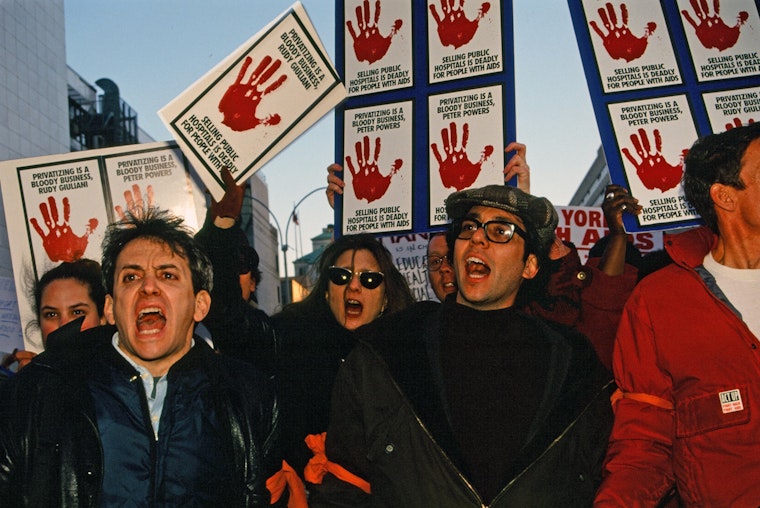
Police are hazardous to public health and pandemic control
The use of police to enforce quarantines or detect fevers, as practiced in Singapore and China, will only exacerbate vulnerability in the longer term. Mass demonstrations over the death of George Floyd this week underscore the point that populations that are already over-policed and vulnerable to COVID-19 (such as people who use drugs in the Philippines, residents of Brazilian favelas, and African American men in the United States) will not trust law enforcement to help protect their health.
In the case of HIV, policing and imprisonment has made it harder to reach those at greatest risk, has deprived people of effective prevention, and has interrupted treatment. With COVID-19, we have already seen blurring of health and law enforcement, as when Israeli authorities tapped cellphone data collected for counterterrorism to track COVID-19 contacts, or when victims overdosing in their cars in Ohio were charged with violating COVID stay-at-home orders. Reducing arrest and imprisonment is the public health priority.
Community building works better than edicts from above
While public health officials talk of “hard to reach” populations, people in those communities have no difficulty finding each other. As our experience with HIV prevention has shown, health education is most effective when it’s done by people who are in touch with the day-to-day realities of the people they’re trying to help—especially when it comes to groups who have good reason to distrust doctors and governments. Calls for shoe-leather epidemiology and a new corps of contract tracers are correct—but the who is as is important as the what. Prioritize hiring people with on-the-ground knowledge and community credibility.
Timelines usually mislead, rather than clarify
Claims that the cities will fully reopen by August or have a vaccine by September are more likely to disappoint than inspire. Virtually every advance will be differentially realized, if realized at all, and strong scientific process is needed to distinguish aspiration from reality. People with AIDS endured false hope, and undertook Herculean efforts, to gain access to dozens of treatments that turned out to be useless. U.S. Secretary of Health Margaret Heckler announced that there would be an AIDS vaccine within two years. That was in 1984.
The price of new treatments will determine how we perceive those who need them
Unless new tests and treatment are priced so that they can be available to all, wealthier people—and nations—will find ugly ways of justifying why they have access and others do not. AIDS treatment is a story of price and prejudice. In 2001, for example, when medicines were priced beyond the reach of countries in the Global South, the director of the U.S. Agency for International Development made the racist assertion that Africans “do not know what watches and clocks are” and therefore couldn’t use treatment appropriately. When medicine prices plummeted following introduction of generic competition, however, resistance to universal HIV treatment also collapsed.
Don’t blame individuals for systemic failures
Public health systems tend to label certain patients “non-compliant,” rather than scrutinizing their own institutional rigidity. People visiting AIDS centers in Eastern Europe, for example, where the overwhelming majority of those first diagnosed with HIV were people who injected heroin, were often confronted by signs that read, “If you are under the influence of narcotics, please come back tomorrow.” For those with a daily heroin habit, this translated to “don’t come back.”
In the United States, meanwhile, African American men who had sex with other men—who also experienced much higher rates of HIV—were regularly suspected of taking more risks, of using more drugs, of being “down low” and self-hating and not caring to protect themselves. In fact, they had no more risk behaviors than their white counterparts—but had less access to HIV testing and treatment, and more HIV in their social networks. We already see migrants being labeled COVID “health bombs” or infectious “invaders.” The actual toxin is the thinking that converts government failure into an individual behavior problem, and then scapegoats the vulnerable for their own vulnerability.
Think globally—but fund flexibly
It took 20 years to recognize the need for an international response and to create a global fund for HIV prevention and treatment. AIDS funds, however, were often restricted to specific kinds of help—providing support to HIV clinics, for example, while equally crucial facilities next door lacked staff or supplies. COVID-19 impacts multiple aspects of life and will require multiple, interdisciplinary responses—and a respect for local context and creativity in setting standards.
Activists will need to push for justice
COVID-19 has mobilized new networks for mutual aid, scientific collaboration, philanthropic contribution, and more. But generic 7 p.m. salutes to health care workers may need to be replaced by actions with a harder edge if those same workers are to get the personal protective equipment and hazard pay they need. While scientists may wish to work together, the pharmaceutical executives who employ them may not be as open to sharing. Trillions in emergency aid needs thousands of eyes to analyze where the money goes and who is being shut out.
One of the key lessons of AIDS activism—which flourished long before HIV treatment was available—was the importance of imagining a better reality, rather than accepting the limits of our current one. Now we are called to do that again.
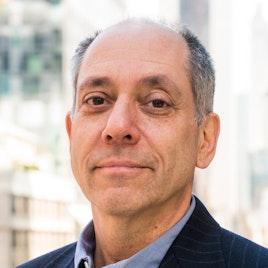
Until December 2021, Daniel Wolfe was director of the International Harm Reduction Development Program at the Open Society Foundations.

